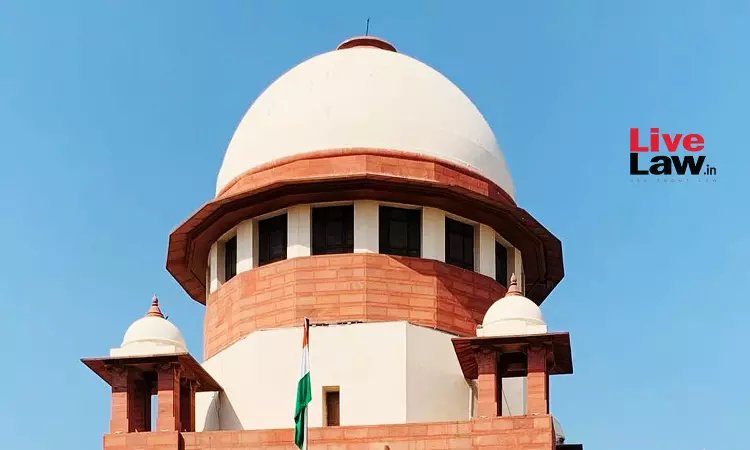Contents
Waqf Amendment Bill 2025 Faces Legal Challenge in Supreme Court
Hours after the Parliament passed the Waqf Amendment Bill 2025, Congress MP Mohammad Jawed has filed a petition in the Supreme Court, arguing that the Bill infringes on constitutional rights and disproportionately impacts the Muslim community.
Lead: In a significant political development, Congress MP Mohammad Jawed has filed a petition in the Supreme Court challenging the recently passed Waqf Amendment Bill 2025. The Bill, which amends the original 1995 Waqf Act, raises concerns about potential violations of constitutional rights enshrined under Articles 14, 25, 26, 29, and 300A. The petition comes in the wake of intense discussions in Parliament, following a marathon debate that led to the Bill’s passage shortly after 2:30 AM. While the Bill awaits presidential assent to become law, its implications are already being scrutinized both legally and publicly.
Understanding the Waqf Amendment Bill 2025
Key aspects of the Bill include:
– **Alterations to Regulations:** The Bill proposes various changes to the existing governance of Waqfs, which are religious endowments in Islamic law.
– **Increased State Intervention:** Critics argue that the Bill disproportionately increases government control over Waqf affairs.
– **Eligibility Criteria for Waqfs:** The stipulation requiring individuals to have practiced Islam for at least five years to establish a Waqf has raised eyebrows.
Core Controversies and Legal Concerns
1. **Discriminatory Practices:**
– The petition asserts that the Bill discriminates against the Muslim community by imposing burdens that are not seen in the governance of other religious trusts, like those of Hindus and Sikhs.
– Jawed’s petition highlights, “While Hindu and Sikh trusts enjoy self-regulation, the amendments to the Waqf Act disproportionately increase state intervention, violating Article 14.”
2. **Restrictions on New Practitioners:**
– The requirement that individuals must have been practicing Islam for five years to create a Waqf has been labeled as an “unfounded limitation” that violates fundamental religious freedoms protected by Article 25.
3. **Historical Legal Precedents:**
– Concerns were raised regarding the omission of the Waqf-by-User provision, which has been supported by longstanding judicial decisions, thereby undermining established legal principles.
4. **Interference in Religious Governance:**
– The integration of non-Muslims in the Central Waqf Council and State Waqf Boards has been termed by the petitioner as “unwarranted interference,” questioning the logic behind allowing individuals from other faiths to govern Waqf properties, particularly when Hindu trusts remain exclusive to their community.
5. **Shifts in Control:**
– The transfer of power to determine the nature of Waqf properties from the Waqf Board to District Collectors is depicted as a dilution of religious authority and a contravention of Article 26, which guarantees the right of religious denominations to manage their internal affairs.
The Political Climate and Response
The Waqf Amendment Bill was passed amid a backdrop of intense political debate:
– **Marathon Parliamentary Sessions:** Both the Lok Sabha and Rajya Sabha engaged in lengthy discussions that extended past midnight, before ultimately approving the Bill.
– **Growing Dissent:** The challenge in the Supreme Court reflects a broader dissent among some political factions, particularly the Congress party, regarding what they perceive as an infringement on religious freedom.
Reactions from Legal Experts and Politicians
Legal experts and politicians have offered a mixed bag of responses to the Bill and the subsequent petition:
– **Legal Expert Interpretation:** Many legal professionals speculate that the Supreme Court might scrutinize the Bill in light of historical protections for religious and minority rights.
– **Political Implications:** Congress MP Jawed indicated that the amendments could set a dangerous precedent affecting minority rights in India.
Next Steps and Potential Legal Outcomes
As the legal process unfolds, several scenarios could emerge:
– **Precedential Impact:** A ruling from the Supreme Court may establish a significant precedent concerning the intersection of state authority and religious governance.
– **Focus on Constitutional Rights:** Observers expect the court to focus heavily on constitutional guarantees of equality and religious practice, which may lead to potential amendments or overturning of the Bill.
Conclusion: The filing of this petition marks a pivotal moment in the discourse surrounding the Waqf Amendment Bill 2025, highlighting ongoing tensions between legislative action and constitutional rights. As this legal battle commences, it will encapsulate significant issues of equality, religious freedom, and state intervention in personal and community affairs. The outcome could potentially reshape the legal landscape for religious endowments in India, particularly for the Muslim community.
Keywords: Waqf Amendment Bill 2025, Supreme Court petition, religious rights, constitutional violations, Muslim community, state intervention, Waqf governance
Hashtags: #WaqfAmendmentBill #SupremeCourt #ConstitutionalRights #MuslimCommunity #LegislativeDebate #ReligiousFreedom #IndiaNews
Source link




